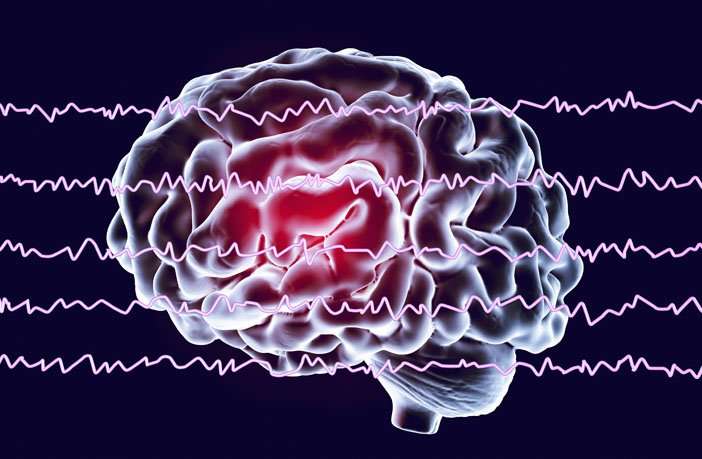A new study that monitored children’s brain activity suggests that social anxiety is related to a preoccupation with making mistakes. The research, published in the Journal of the American Academy of Child & Adolescent Psychiatry, provides insight into the neurological mechanisms underlying social anxiety symptoms.
“I am interested in better understanding social anxiety, and how it develops, for a number of reasons,” said study author George Buzzell of the University of Maryland.
“First and foremost, social anxiety is a debilitating disorder affecting many individuals and we need to better understand this disorder if we want to help these people. I myself struggled with social anxiety for almost two decades and feel that I have been largely successful in overcoming it; I want to better understand this disorder so that I can help others find the help they need to do the same.”
The study examined 107 twelve-year-old children who had displayed an early-childhood temperament known as behavioral inhibition when they were younger. The researchers used an electroencephalogram to monitor the electrical brain activity of the children as they completed a psychological test that measures a participant’s ability to focus on information while blocking out distractions.
The children completed the test, known as a flanker task, twice. Once after being told they would be observed and once after being told they would not be observed.
By looking at post-error response times and a particular pattern of brain activity known as Error-Related Negativity, Buzzell and his colleagues were able to find that social anxiety and behavioral inhibition were linked to a hypersensitivity towards errors when under social observation.
“One of the mechanisms through which social anxiety arises is an excessive focus on one’s self, and one’s perceived mistakes, in social situations. For individuals with social anxiety, this excessive focus on one’s perceived mistakes distracts/detracts from the ongoing social interaction,” Buzzell told PsyPost.
But the study has some limitations.
“First, is that although we were able to assess a child’s temperament early in life, prior to the development of social anxiety symptoms in adolescence, the other neurobehavioral measures were assessed once the adolescents were already showing signs of social anxiety,” Buzzell explained. “A better approach would be to also access the neurobehavioral measures prior to the emergence of social anxiety symptoms in order to truly identify a mechanism that gives rise to it.
“The second major limitation is that our measure of ‘error preoccupation’ is based only on reaction times and is a rather crude measure; currently, we are employing more sophisticated analyses in order to better capture the full cascade of neural processes that precede and follow errors; we hope to publish the results of these new analyses soon.”
“Although I am the one doing the talking right now, this was truly a team effort, involving a lot of very smart people (that are listed as authors on the manuscript). I am very grateful to all of my co-authors for their work on this project over the years and their insight, especially the principal investigator of this project, Dr. Nathan A. Fox,” Buzzell added.
“Additionally, all of us are immensely thankful to all of the families that participated in this research, as it would not have been possible without their participation and commitment to the project. We are also very grateful for the generous funding that this project has received over the years.”
The study, “A Neurobehavioral Mechanism Linking Behaviorally Inhibited Temperament and Later Adolescent Social Anxiety“, was authored by George A. Buzzell, Sonya V. Troller-Renfree, Tyson V. Barker, Lindsay C. Bowman, Andrea Chronis-Tuscano, Heather A. Henderson, Jerome Kagan, Daniel S. Pine, and Nathan A. Fox.

Roflcaust on March 28th, 2018 at 13:07 UTC »
I have this problem. I was taught in therapy to seek opportunities to purposefully make mistakes in front of people and to use techniques taught in cognitive behavioral therapy to assess and counter unproductive thought patterns, with the end result being a desensitization to making real mistakes. It was the hardest thing I’ve ever had to do at first, but it got easier with persistence and eventually it got fun sometimes. Who would have thought?
TishraDR on March 28th, 2018 at 12:49 UTC »
For me, it isn't the fear of making mistakes so much as the fear of being ridiculed for making mistakes. I cannot take being ridiculed.
ShadowGrif on March 28th, 2018 at 12:04 UTC »
As someone who suffers from this, i realised this a couple of years ago on my own and it has gotten better because i just think to myself : "what's the worse thing that could happen?" if the answer is nothing relevant, i force myself to do what i'm avoiding.
It doesn't always work, sometimes i still run from unconfortable situations, but now i can aproach people in public, correct people when they dont understand me, argue with people (this was a big no no).